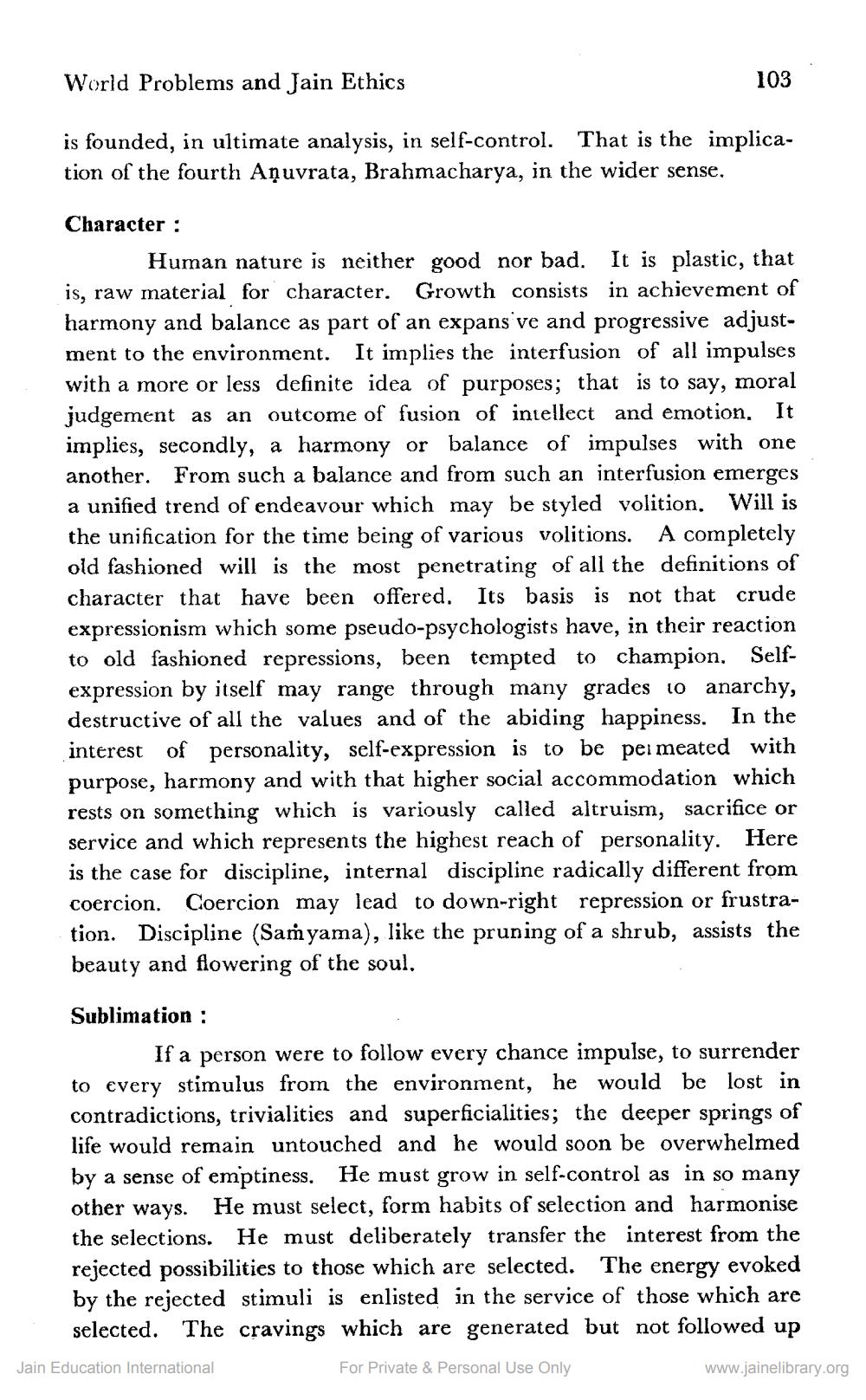________________
World Problems and Jain Ethics
103
is founded, in ultimate analysis, in self-control. That is the implication of the fourth Aņuvrata, Brahmacharya, in the wider sense.
Character :
Human nature is neither good nor bad. It is plastic, that is, raw material for character. Growth consists in achievement of harmony and balance as part of an expans ve and progressive adjustment to the environment. It implies the interfusion of all impulses with a more or less definite idea of purposes; that is to say, moral judgement as an outcome of fusion of intellect and emotion. It implies, secondly, a harmony or balance of impulses with one another. From such a balance and from such an interfusion emerges a unified trend of endeavour which may be styled volition. Will is the unification for the time being of various volitions. A completely old fashioned will is the most penetrating of all the definitions of character that have been offered. Its basis is not that crude expressionism which some pseudo-psychologists have, in their reaction to old fashioned repressions, been tempted to champion, Selfexpression by itself may range through many grades 10 anarchy, destructive of all the values and of the abiding happiness. In the interest of personality, self-expression is to be pei meated with purpose, harmony and with that higher social accommodation which rests on something which is variously called altruism, sacrifice or service and which represents the highest reach of personality. Here is the case for discipline, internal discipline radically different from coercion. Coercion may lead to down-right repression or frustration. Discipline (Samyama), like the pruning of a shrub, assists the beauty and flowering of the soul.
Sublimation :
If a person were to follow every chance impulse, to surrender to every stimulus from the environment, he would be lost in contradictions, trivialities and superficialities; the deeper springs of life would remain untouched and he would soon be overwhelmed by a sense of emptiness. He must grow in self-control as in so many other ways. He must select, form habits of selection and harmonise the selections. He must deliberately transfer the interest from the rejected possibilities to those which are selected. The energy evoked by the rejected stimuli is enlisted in the service of those which are
selected. The cravings which are generated but not followed up Jain Education International For Private & Personal Use Only
www.jainelibrary.org




